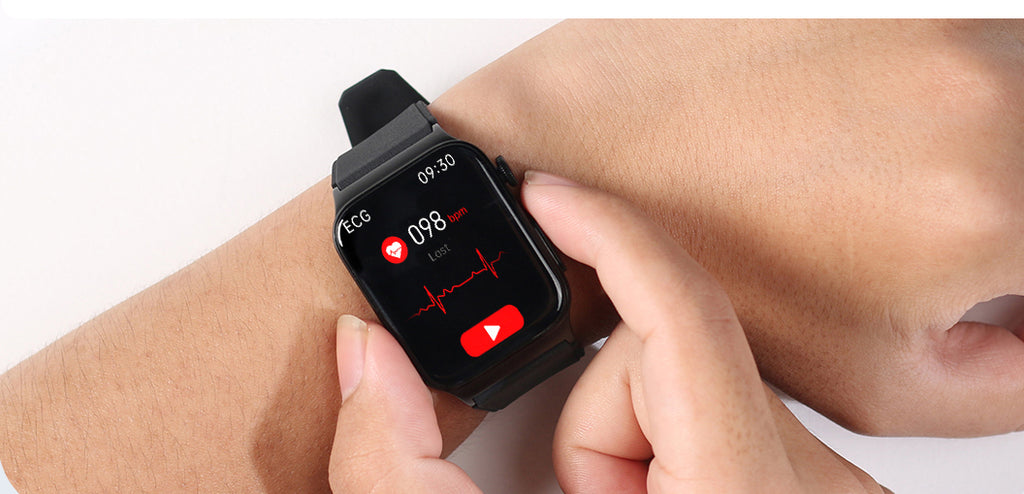Smart Watch Band
In the world of nutrition, cruciferous vegetables emerge as nutritional powerhouses, celebrated for their unique flavors and impressive health benefits. From broccoli to kale, this diverse family of vegetables has gained recognition for its potential in promoting overall well-being. In this blog, let's delve into the various types of cruciferous vegetables, uncover their distinct qualities, and understand the multitude of health rewards they offer.
Cruciferous Vegetable Lineup
-
Broccoli: A culinary favorite, broccoli is not only rich in vitamins C and K but also contains sulforaphane, a potent compound associated with anti-inflammatory and anti-cancer properties.
-
Cauliflower: A versatile cruciferous vegetable, cauliflower is a low-calorie source of fiber and vitamins. It's an excellent substitute for starchy grains in dishes like cauliflower rice or pizza crust.
-
Kale: Praised as a nutrient-dense leafy green, kale boasts high levels of vitamins A, C, and K. It is also rich in antioxidants and may contribute to heart health and inflammation reduction.
-
Cabbage: Whether red or green, cabbage is a cruciferous gem offering fiber, vitamins, and minerals. Its compounds have been linked to potential anti-cancer effects and digestive health benefits.
-
Brussels Sprouts: Brussels sprouts pack a nutritional punch with fiber, vitamins, and antioxidants. Their unique combination of nutrients supports digestive health and provides anti-inflammatory benefits.
-
Arugula: Known for its peppery flavor, arugula is a cruciferous leafy green that adds a zesty kick to salads. It's rich in vitamins and minerals, contributing to bone health and overall immunity.
-
Bok Choy: Commonly found in Asian cuisine, bok choy is a cruciferous vegetable that provides vitamins A and C. Its unique taste and texture make it a delightful addition to stir-fries and soups.
Health Benefits of Cruciferous Vegetables
-
Cancer Prevention: Cruciferous vegetables contain compounds like sulforaphane and indole-3-carbinol, which have shown potential in reducing the risk of certain cancers, including breast, prostate, and colorectal cancers.
-
Heart Health: The fiber, antioxidants, and potassium found in cruciferous vegetables contribute to heart health by promoting healthy cholesterol levels, reducing inflammation, and supporting overall cardiovascular well-being.
-
Digestive Support: High in fiber, these vegetables aid digestion and promote a healthy gut. They may also play a role in preventing digestive issues like constipation.
-
Anti-Inflammatory Properties: The compounds in cruciferous vegetables exhibit anti-inflammatory effects, contributing to the prevention and management of chronic inflammatory conditions.
-
Nutrient Density: Packed with essential vitamins and minerals, cruciferous vegetables offer a nutrient-dense option for maintaining overall health and vitality.
Incorporating Cruciferous Vegetables into Your Diet
-
Roasted Brussels Sprouts: Toss Brussels sprouts in olive oil, sprinkle with seasonings, and roast for a flavorful and nutritious side dish.
-
Kale Smoothie: Blend kale into your morning smoothie with fruits and yogurt for a nutrient-packed start to your day.
-
Cauliflower Mash: Swap traditional mashed potatoes for a lighter alternative by preparing cauliflower mash seasoned to your liking.
-
Stir-Fried Bok Choy: Add bok choy to stir-fries with garlic and soy sauce for a delicious and nutrient-rich Asian-inspired dish.
As we explore the world of cruciferous vegetables, it becomes evident that their benefits extend far beyond their distinctive flavors. Whether you savor them in a vibrant salad, stir-fry, or roasted medley, incorporating cruciferous vegetables into your diet can be a flavorful journey towards improved health and well-being. So, embrace the diversity of these nutritional powerhouses, and let them be a cornerstone of your culinary and wellness adventures. Your taste buds and your health will thank you.
When we taste the delicious taste of cruciferous vegetables on our culinary journey, it reminds us that a healthy lifestyle is not limited to the dinner table, but can also incorporate the power of some technology. BP Doctor Non-invasive blood glucose ECG and PPG Smartwatch ECG5 integrate seamlessly with your lifestyle to provide real-time insights into your health metrics, including heart rate. It supports four heart rate measurement methods: Watch wearing detection, chest stickers, ECG belt, and hand-held ECG. May your life be filled with health, flavor and smart support from the BP Doctor Smartwatch.










